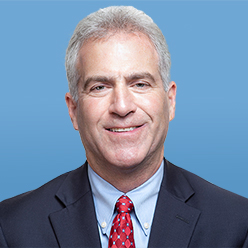During the holy month of Ramadan, now underway, when TV viewership among Muslims traditionally skyrockets, Saudi Arabia’s MBC network is airing a series about Jewish families in a fictional Arab country in the late 1940s — a series that speaks volumes about what’s changing, and what isn’t, across the region.
In the series “Umm Haroun,” which means “mother of Aaron,” Jews, Christians, and Muslims live easily with one another. Jews, for instance, express “mazel tov” (congratulations in Hebrew) to a Muslim man upon his engagement, while families of all three religions cook together before the Jewish Sabbath. Viewers even witness the romantic relationship of a Jewish woman and Muslim man.
Nor is this the only positive depiction of Jews to air on MBC, the Arab world’s largest private broadcaster. Along with “Umm Haroun,” the network is airing “Exit 7,” a comedy in which, in one episode, two characters debate the Israeli-Palestinian conflict and one of them professes that he’d be happy to do business with the Jewish state.
Not surprisingly, “Umm Haroun” has stoked controversy across the region. That Saudi Arabia’s monarchy, to which MBC must be sensitive, is letting the series air reflects the potential for hugely consequential changes in Saudi-Israeli relations. That, at the same time, Palestinian officials are criticizing Riyadh in outraged terms reflects the futility of ongoing Israeli-Palestinian peace efforts.
Israeli relations with Saudi Arabia and the region’s other leading Sunni Muslim states have improved markedly in recent years, driven by shared concerns over the nuclear pursuits and hegemonic ambitions of Iran, the region’s leading Shia Muslim state.
Nowhere are the changes more dramatic than between Jerusalem and Riyadh. They’re not only cooperating behind the scenes on military and other matters, but Saudi officials are appearing more frequently with Israeli officials and leading Jewish figures. In February, for instance, Saudi’s King Salman hosted Rabbi David Rosen, who’s based in Jerusalem, at the Royal Palace in Riyadh.
The warmer words and closer contacts could be setting the stage for more formal ties between Jerusalem and Riyadh. If so, MBC’s programming would nourish such ties by influencing attitudes among the Saudi population.
When it comes to Muslim TV viewership, Ramadan is, as the Times of Israel put it, “like the Super Bowl for advertisers.” Families turn to TV as they break their day-long fasts — a phenomenon that’s even more true this year, during a time of coronavirus and government-directed shut-ins.
Though a fictional series, “Umm Haroun” has a decidedly political undertone. “I wanted to write this drama,” the head writer, Ali Shams, told the Associated Press, “to deliver the message that our societies were much more tolerant than they are today, and people should go back to the same values.”
To be sure, Shams differentiates Jews from Israel, alleges that the latter committed “atrocities” against Palestinians, and says he shares the Palestinian “cause.” That differentiation, however, marks a regional sea change.
Not that many years ago, the Arab media made no such distinction. It considered Jews and Israel as one and the same — and portrayed them both in anti-Semitic fashion. “Umm Haroun,” along with other shows that have aired in recent years in Egypt and Syria, now portray Jews in sympathetic terms.
But if, with Riyadh’s implicit assent, Saudi Arabia’s leading broadcaster is helping to lay the groundwork for normalized Saudi-Israeli relations, Palestinian society remains stuck in place, with the major organs of education and communication still encouraging little more than continued conflict.
The Palestinian Authority, which runs the West Bank, continues to pay stipends to Palestinian terrorists and their families; Palestinian officials promote violence against Jews on TV and through social media; and Palestinian school textbooks continue to promote a Palestine that stretches “from the [Jordan] River to the [Mediterranean] sea” — that is, one encompassing all of the land of what’s now Israel.
Reflecting the disparity in grassroots sentiment about Israel between Saudi and Palestinian societies, “Umm Haroun” has sparked a Twitter war between the two. Many Saudis are tweeting under the hashtags “Palestine is not my cause” and “the Zionist enemy [is our] brother,” while many Palestinians are writing in response under the hashtags “Palestine is my cause” and “Israel is an enemy.”
The Israeli-Palestinian conflict has long occupied center stage in the West, with U.S. and European officials assuming that a peace agreement between the two sides would lead to broader regional peace.
Warming Saudi-Israeli ties, however, show that the region’s leading players are largely focused elsewhere. Perhaps the West should spend more time pushing the Saudi-Israeli relationship to full fruition — and less time pursuing an Israeli-Palestinian peace that the Palestinians don’t seem ready to embrace.
Lawrence J. Haas, senior fellow at the American Foreign Policy Council, is the author of, most recently, "Harry and Arthur: Truman, Vandenberg, and the Partnership That Created the Free World."
